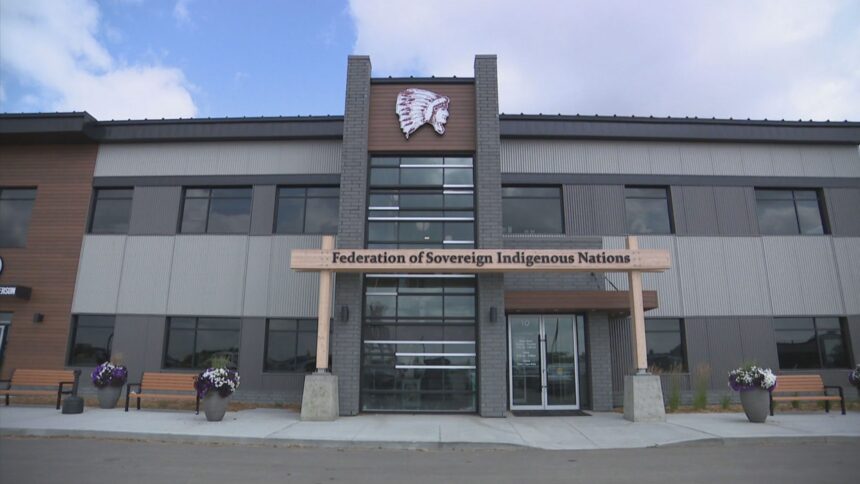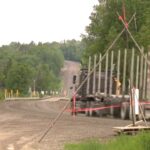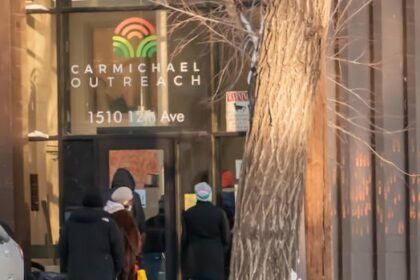A summary of the federal audit of the Federation of Sovereign Indigenous Nation’s books landed with a thud across First Nations in Saskatchewan Wednesday. The 18-month probe found tens of millions of dollars in questionable spending and raised even more questions about how the FSIN operates. “I can say it does hurt to know there’s been a lot of racism and criticism of us as Indigenous people and how we manage our finances and governance decisions,” said Jennifer Laewetz, political commentator and member of the George Gordon First Nation in an interview with APTN News. “Just to see firsthand that I know that some of those criticisms and those concerns are legitimate. I can’t even in good faith argue them anymore because I have them too.” According to the audit, $34 million in spending over a five year period was “questionable, ineligible and unsupported.” While several areas were assessed, spending of COVID 19 dollars from the federal government perhaps raises eyebrows the most with $23.4 million deemed questionable, ineligible or unsupported, in part because Indigenous Services Canada was unable to “obtain complete supporting documentation to determine eligibility,” according to the summary. It also says it couldn’t “assess how or if purchased Personal Protective Equipment was distributed to the 74 member First Nations of FSIN,” citing a lack of documentation. The forensic audit conducted by KPMG for Indigenous Services Canada was prompted by allegations and complaints raised with the department’s Assessment and Investigation Services Branch (AISB) in March 2024. ISC has not said where the complaint originated. APTN News reached out to ISC regarding the audit and what it plans to do with the information. “We will take action on the findings and recommendations. We are carefully considering next steps, and will consult with any appropriate authorities as required,” said ISC spokesperson Anispiragas Piragasanathar in an emailed statement. The email does not detail what form that action will take. Meanwhile the Saskatoon Tribal Council will respond to the audit at a news conference tomorrow morning. It’s expected several First Nation chiefs will also be on hand to share their reaction. STC represents approximately 11,000 First Nations people all located within a 200 km radius of Saskatoon. The STC member nations include Kinistin Saulteaux Nation, Mistawasis Nêhiyawak First Nation, Muskeg Lake Cree Nation, and Muskoday, One Arrow, Whitecap Dakota, and Yellow Quill First Nations. Laewetz said the audit has opened a conversation around holding Indigenous leaders accountable. “At some point, we need to acknowledge the fact that we should not have to go to the federal government every time that we want accountability,” Laewetz contends. “And I don’t want to have to go to the public arena to talk about Indigenous governing bodies that aren’t managing themselves well because what does that do when we’re trying to build up that truth and reconciliation and be trusted as a people and look presentable and look like we can manage ourselves and behind the scenes it’s a mess.” APTN reached out to several chiefs for comment about the audit. Only one got back to us. Chief Kelly Wolfe of Muskeg Lake says he’s holding his comments until the STC news conference tomorrow. ‘We are doing good too’ Laewetz worked for a member of Parliament for six years and also earned a degree in Political Studies from the University of Saskatchewan. She’s built a large audience on social media for her commentary on a variety of issues. Laewetz also has family members who are Métis Nation-Saskatchewan citizens and she has been publicly critical of governance issues at MN-S over the past several months. “And it is hard when you’re an Indigenous person trying to fight for success and to take care of your family. You do get presented these crossroads that you have to decide morally what is the right thing to do,” Laewetz says. “And sometimes people get in too deep where they can’t bring themselves out. Some people don’t realize sometimes that they’re acting unethically. And then there’s the people that know exactly what they’re doing and then they’re protected by people that also know what they’re doing but have benefited in some way.” Laewetz points to social issues being dealt with on many First Nations as issues that need addressing. “And then publicly we have homelessness, mental health, poverty, addictions, all of these things. And it’s like no wonder things are a mess. Because we’re a mess sometimes and I want to fix that,” she says. “But I do want to say that we are doing good too. There’s a lot of leadership out there that are doing really good. They’re doing good things, they’re doing good work, they’re fighting for the truth, they’re fighting for justice and those are the ones we have to support. Continue Reading
Findings of FSIN audit hurt public opinion of First Nations governments says Indigenous political commentator

Leave a Comment










